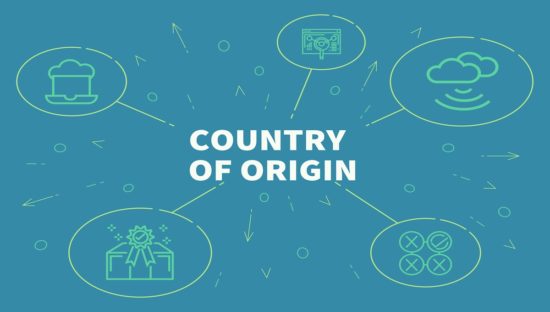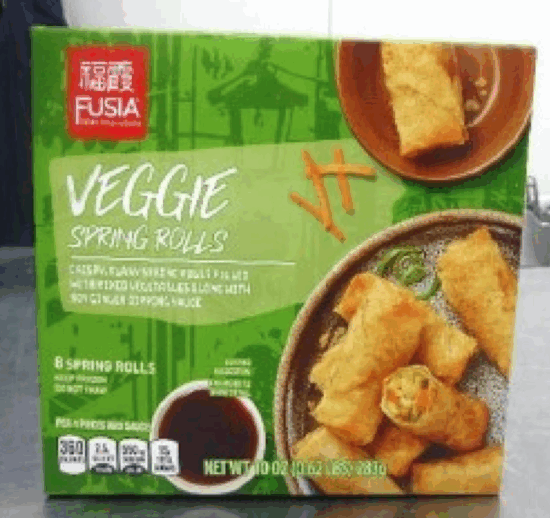At least in part for food safety reasons, consumers prefer to know where their food is coming from. The origin of beef and other meats has eluded American consumers over the years.
But another opportunity may be emerging, with the Trump Administration looking to open the U.S. to more beef from Argentina and Brazil to bring down skyrocketing prices.
U.S. Senate Majority Leader John Thune’s American Beef Labeling Act (S.421) picked up a House companion bill last week, filed by Rep. Harriet Hageman, R-WY, and Rep. Ro Khanna, D-CA.
It reintroduces the Country of Origin Labeling Enforcement Act in the House, reinstating mandatory country of origin labeling (MCOOL) for beef. Representatives Hageman and Khanna were joined by Representatives Warren Davidson, R-OH, Thomas Massie, R-KY, Chip Roy, R-TX, and Paul A. Gosar, R-AZ.
The companion bills have bipartisan support in both chambers from a coalition of organizations representing cattle producers.
“American consumers deserve accurate information on the products they buy, and U.S. ranchers deserve honest and fair competition in the marketplace,” Hageman said. “The U.S. abandoned MCOOL for beef in 2016 following a World Trade Organization ruling. This change raised the profit margins of monopolistic big packers at the expense of American ranchers. The domestic market is finally providing our producers with the means to keep family ranches alive, and we must protect these operations by ensuring full transparency into the origin of beef in the marketplace. MCOOL is more important than ever to grow the size of the national herd and stop the blending of cheap foreign beef in high-quality U.S. products,”
Rep. Khanna said: “The Trump administration is quadrupling Argentinian beef imports while our farmers continue to struggle. We need a trade policy that puts America first. I’m proud to lead legislation with Rep. Hageman that blocks multi-national meat packing companies that are importing cattle and falsely labeling them as American.”
Since the repeal of COOL in 2015, Montana has lost 25 percent of the state’s family ranches, according to the Montana Farmers Union.
“Mandatory country-of-origin labeling is more important now than ever because the United States has imported more beef than at any other time in history,” said Montana Farmers Union President Walter Schweitzer. “If we had MCOOL, the multinational packers would have to label it truthfully, and the consumer would have the choice to pay less for foreign beef. I am fine with importing beef if it’s labeled honestly and accurately. This will allow U.S. producers to compete on a fair playing field.”
Chad Franke, President of Rocky Mountain Farmers Union, added this: “American ranchers produce the highest-quality beef — and consumers want to purchase that premium product and support family ranches and rural communities. To make informed choices, American consumers deserve to know where their food comes from.”
“The implementation of Mandatory Country of Origin Labeling (MCOOL) is essential to ensure transparency in the marketplace and to strengthen trust between producers and consumers. MCOOL benefits both — giving ranchers the recognition they deserve and consumers the confidence they expect,” Franke continued.
Major multinational beef processors are frequently accused of manipulating markets by combining foreign meat products with U.S.-raised beef and labeling it to consumers as “Product of the U.S.A.”
President Trump wrote on social media on Oct. 23, saying cattle ranchers “…don’t understand that the only reason they are doing so well, for the first time in decades, is because I put Tariffs on cattle coming into the United States…If it weren’t for me, they would be doing just as they’ve done for the past 20 years – Terrible!”
Bill Bullard, R-CALF USA CEO, responded by saying President Trump should “manage imports, restore mandatory country-of-origin labeling for beef, and put an end to the monopolistic control that packers and retailers have over our beef supply chain. Doing so will incentivize America’s ranchers to rebuild and expand the U.S. herd to meet our national security needs and ensure that competitive market forces determine consumer beef prices.”
“It is long past time that retail beef proudly proclaims – ‘Born, Raised, and Processed in the U.S.A,’” says Northern Plains Resource Council Agriculture Task Force Chair Giles Stockton. “American producers are shut out of their own market by imports, which account for 70 to 80 percent of the sales. Without MCOOL, consumers have no way of truly knowing what they are buying. With MCOOL, they will have the opportunity to demand American beef.”
A new USDA rule going into effect on Jan.1, 2026, mandates that no foreign meat can be mixed with U.S. beef if the product is labeled “Product of U.S.A.” and “Made in the U.S.A.” Sponsors of the Congressional legislation do not believe the rule goes far enough because it allows meatpackers to opt out.
The Country of Origin Labeling Enforcement Act reinstates MCOOL requirements for beef and increases fines for falsely labeling beef as made in the U.S.A., including for multinational packers. The bill also states that no ruling by an international body, such as the WTO, affects our country’s ability to implement country-of-origin requirements.
(To sign up for a free subscription to Food Safety News, click here.)



